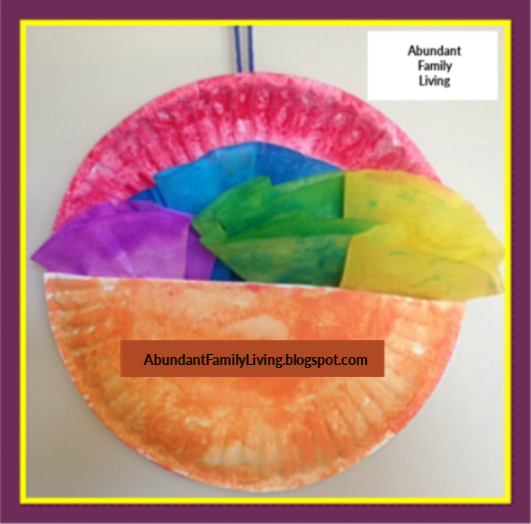 |
| Image Credit: Abundant Family Living (Tina Truelove) |
The Puppy Book by Jan Pfloog
The Puppy Book is a Golden Super Shape Book. The story was written by Jan Pfloog and was first published in 1968.
The pages are colorful and feature all kinds of breeds. Children learn that all puppies are not small. Some puppies are bigger than others. Some of thinner. Some are fatter. Some are shorter. Some are taller. The first page would be a great time to discuss the concepts of big, little, tall, short, large, and small to younger children.
 |
| Image Credit: Abundant Family Living (Tina Truelove) |
Children learn that puppies are messy when they eat and they sometimes chew on things other than foods.
 | |
| Image Credit: Abundant Family Living (Tina Truelove) |
Children learn that puppies like to rest when they get tired.
Activities to Enhance the Reading Experience
Discuss dog foods with children. Educate the children on the proper care and feeding of dogs and other animals.
Address questions such as:
How much food should a puppy have each day?
What kinds of dog and puppy foods are best for certain dogs and puppies?
Is it healthy for a puppy to eat adult dog food?
Is it healthy for puppies to eat human food from the table?
Should dogs drink milk or just water?
Many children have puppies or other animals at home so they have probably experienced having an animal which chewed up mom or dad's favorite pair of slippers or tore the fabric on the living room furniture. Allow them to tell their puppy stories. Then, discuss ways in which pet owners might encourage animals to not chew on things other than food.
Allow the children to discuss all the different ways they play with their pets. Some of their stories might be quiet hilarious.
Make a classroom pet scrapbook. Ask the children to bring in photos of their pets. Place a photo of each child and their pet on a piece of construction paper. Leave enough room at the bottom of the page for the child to write a couple of sentences. Instruct the child to write a sentence or two about their pet. It might be as simple as "My dog's name is Charlie. He likes to run with me. I love my dog."
Allow the children to be creative and write whatever they want about their pet, but help them when needed. Then, laminate the pages and bind them together to create a book. Send the book home with a different student each night to read with their parents. Continue this until each child has had a chance to take the book home. Then, leave it in your reading center for the remainder of the year so that the children may enjoy the book whenever they like.
Puppy and Dog Crafts
Puppy Paper Bag Puppets
Supply each child with one brown or white lunch sized paper bag.
Tell the children to slide their hands into the paper bag so that they
will see how the folds in the bottom of the paper bag can become the
mouth of a puppet. Then, allow the children to cut out puppy ears, legs,
and a tail. Supply them with wiggly eyes, pom-poms, yarn, glue,
and anything else you think might make great puppy features. Instruct
the children to create a puppy face. The mouth should align with the
paper bag folds. Then, attach the ears, legs, and tail. After the glue
dries, the children can get into groups and put on puppet shows.
Puppy Paper Plate Craft
The children will need paper plates, paints (gray, brown, and black), construction paper,
and craft supplies to create puppy facial features. Instruct the
children to paint their paper plates. They can decide if they want a
gray dog, a brown dog, a black dog, or a white dog. If you supplied the
children with white paper plates, those who prefer white dogs will not
need to paint. Some children might want to add spots or patches to their
plates. Tell them to cut puppy ears from construction paper and use the
other craft supplies to create facial features.
Shape Dogs
If you are teaching shapes, create "shape dogs." Supply the children
with one large shape for the body of the dog. You might use a large
square or triangle for the body. Use another large shape, but a little
bit smaller than the body, for the dog's head. Supply them with four
rectangles for legs, an oval for a short tail, circles for eyes, a small
triangle for the nose and two large ovals for floppy ears. They can use
a marker to draw on a mouth and then add a half oval for a tongue.
You might also like: Coffee Filter Flower Craft






No comments:
Post a Comment